Race day nutrition products vary from drinks to gels, to bars, to sweets, to sandwiches, and for some, even tablets…
Deciding what the best nutrition for you is on race day depends on what nutrition you practiced with on your long runs in the training weeks leading up to race day. It is vital to remember that nothing new should be consumed on race day.
In your training, you need to try a variety of products specifically on your long runs to make sure you have a sound fuelling and hydration plan that has been practiced come race day.
What you eat and drink before and during your marathon will have a significant impact on your official time.
With that in mind, let’s have a look at the perfect nutrition strategy for the London Marathon…
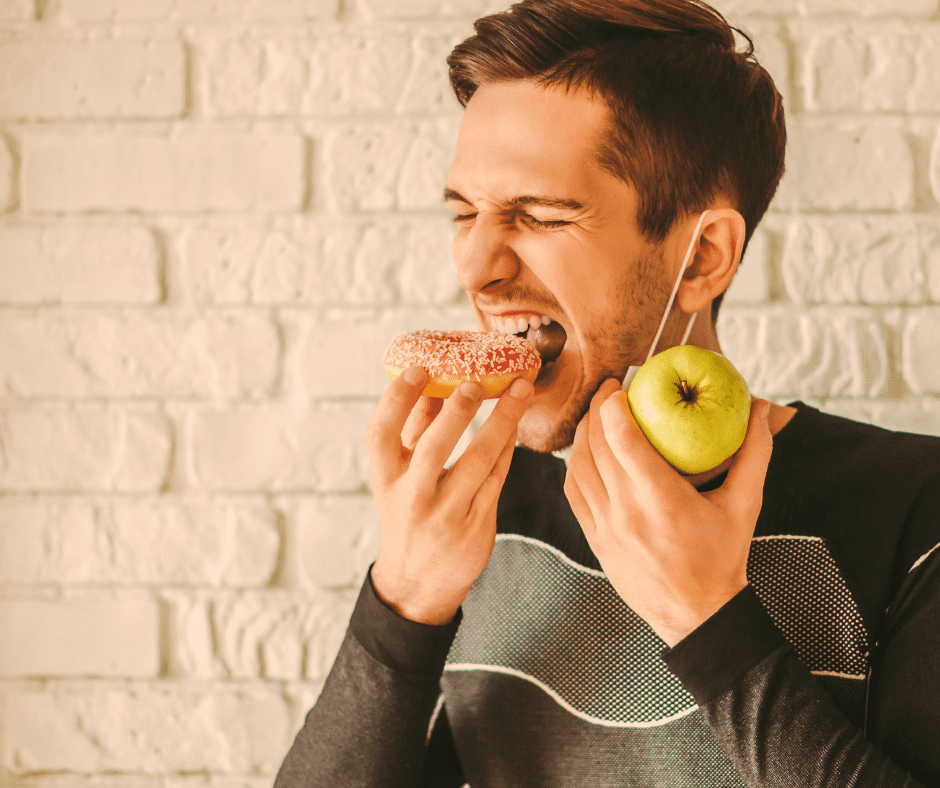
What To Eat While Running The London Marathon
Key Points:
- Test a variety of food options in your training to see what your body agrees with.
- Eat a familiar breakfast the morning of.
- Know what will be provided in aid stations.
- Focus on hydration and carbohydrate consumption throughout the race.
The first step to successful fueling during the London Marathon is to make sure you have practiced your nutrition and hydration strategies during your training. The second step to ensure the London Marathon nutrition consumption success is to plan and prepare the night before.
The week before…
You should focus on having good hydration, continue to eat well with carbs, and reduce fiber intake 2-3 days before to avoid runners’ trots.
The night before…
The night before the London Marathon you should have this nutrition checklist prepared:
- Breakfast ready to go
- Hydration pack filled (If you aren’t sure whether you should use one this may help: Can You Run a Marathon With a Hydration Pack?) – Just be sure to double check if your race allows a hydration pack, not all of them do.
- Snack and water bottle for just before the race
- Race Nutrition laid out. (Gels, Bars, Rehydrate, Sports drinks, etc…)
- Drink enough fluid.
- Avoid alcohol
The day after…
Post-race day recovery – replenish carbs and some protein.
If you plan on drinking alcohol – science has shown 1 beer isn’t detrimental. Dehydration starts after 2 or more beers, but this is obviously dependent on whether or not this is your goal race and if you are concerned about recovery for that week.
If it’s your goal race and you are in a celebratory mood then enjoy! Just be aware of other ways to help aid your recovery.
Let’s dive into each of these points in a bit more detail…
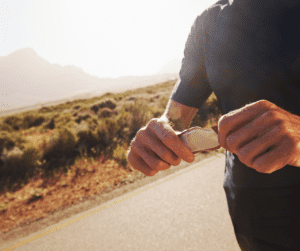
Breakfast Before The London Marathon
You should without a doubt eat breakfast about two hours before the marathon starts.
The goal of eating breakfast and fueling throughout the race is to preserve your glycogen stores and, rather use them up at a slower rate. It won’t prevent you from hitting the wall but it will help you not to hit the wall later in the race.
The breakfast is meant to sustain you for the first 45min – 60 mins of your race. Once your glycogen stores are depleted during a race it’s nearly impossible to “refill”.
Your breakfast should not be high-fat and fiber foods. It should consist of something you have eaten before and practiced in your training.
Examples of breakfast before running a marathon include:
- Oats
- Pancakes & Fruit
- Granola & Milk
- Sweetcorn fritters
- Toast with peanut butter
- Banana Bread
- Low fiber & Low sugar cereal
- Bagels
- English Muffins
- Rice cakes
Just Before The Race Starts (about 45 mins)
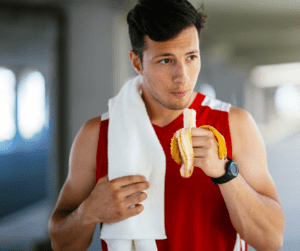
You’re probably going to be feeling an excited buzz mixed with a bit of anxiety around this time… You can wait quite a while before your coral goes, so it’s vital to take some snacks with you.
Sip some water from your water bottle and have a gel or a bit of an energy bar when you have about 15 minutes to go before the start of the marathon.
A method I follow: I drink an energy drink from my water bottle while waiting for my coral to start. I have breakfast in the hotel and then take a banana and mix drink to sip on while waiting. You’ll probably eat a lot of energy bars during the race so I like to have variety while I can.
Pro tip: Keep your gels for during the race as they are easier to carry.
What To Eat During The London Marathon
The crucial rule of fueling during the marathon is to stay ahead of dehydration and feeling exhausted.
You do this by sticking to your tried and tested nutrition and hydration strategies which you practiced in your long run in training.
Most of the energy you are going to use to fuel yourself in the marathon comes from glycogen stored in your muscles.
Once these stores are depleted, your body will begin drawing on sugar stored in the blood and liver.
You need to consume carbohydrates to replace your lost glucose.
It is recommended that the average runner use 50-60 grams of carbs per hour. This will obviously depend on your ability and weight too.
Example – Kipchoge consumes up to 90 grams of Carbohydrates!!!
Examples of food and drinks that are good to consume during a marathon:
- Sports drinks (They provide hydration, carbohydrates, sodium, and potassium.)
- Sports gels, chews & bars (Make sure to consume them with water)
- Boiled baby potatoes
- Bananas
- Grapes
- Gummy bears
- White bread with honey
How To Avoid Runners Trots During The London Marathon
Now that we know what to consume…and when to consume it. Let’s have a look at how to carry your nutrition while running the London Marathon…
How To Carry Your Nutrition During The London Marathon
There are many different ways to carry your nutrition and hydration while running a marathon, some of them are better than others and for most races these days you don’t need to carry anything at all as there are aid stations along the way.
There are water stations every two miles along the London Marathon route (12 in total). At the water stations, some volunteers hand out 250ml plastic bottles of Buxton water.
To mitigate plastic waste TCS has put major sustainability efforts in place which we discuss in this article.
There are Lucozade Sport drink tables providing Lucozade in cups at:
- Mile 9/ 14km
- Mile15/ 24km
- Mile 21/ 33km
- Mile 24/ 38km
Lucozade Sport Energy Gels are being handed out at:
- Mile 14/ 22km
- Mile 19/ 30km
Now that you know what is going to be provided for you along the route… We put together a more detailed article with maps and directions of London Marathon Drinks Stations: What Can You Get & Where.
Other ways to carry your London Marathon nutrition include:
- Hydration packs
- Water bottle gloves
- Fuel belts
- Safety Pin to Shorts (For Gels)
- Get your Seconding team/person to meet you at specific points along the route to hand you your fuel.
How Many Gels Should You Consume During The London Marathon
It’s important to note that all gels are different, some contain more carbs or caffeine.
As I mentioned above, we would generally recommend anywhere between 30 and 60 grams of carbs an hour.
Depending on how many carbs are in your gels and depending on what else you plan to consume each hour, it just needs to make up that 30-60 grams.
Variety is important. Some people can’t handle only gels so this is where bars and energy drinks along the route become helpful.
Pro tip: In hot environments, you should drink more water with your gels otherwise you can get nauseous.
Nausea Before, During, or After Your Run? Here Are 5 Reliable Ways To Prevent It
What Nutrient Would a Marathon Runner Need Most Of On Race Day?
The most important nutrient for runners to consume on race day is carbohydrates. Carbs fuel the body with glycogen. This fuel is then stored in their muscles, which helps them perform efficiently.
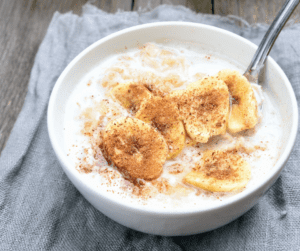
Water (hydration) is also key.
The others become less or more important depending on the environment eg. I’d suggest some electrolytes be added over and above the carbs on a particularly hot day. Very often athletes make the mistake though of only taking electrolytes and no carbs.
We feel the need to reiterate this one last time because it could be the difference between your London Marathon success or failure… Whatever you plan to consume on race day needs to be practiced weeks before race day in your training.
Ensure your success with 12 weeks of access to the Coach Parry London Marathon Training Roadmap.

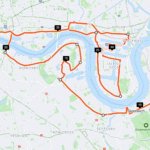

Comments are closed.